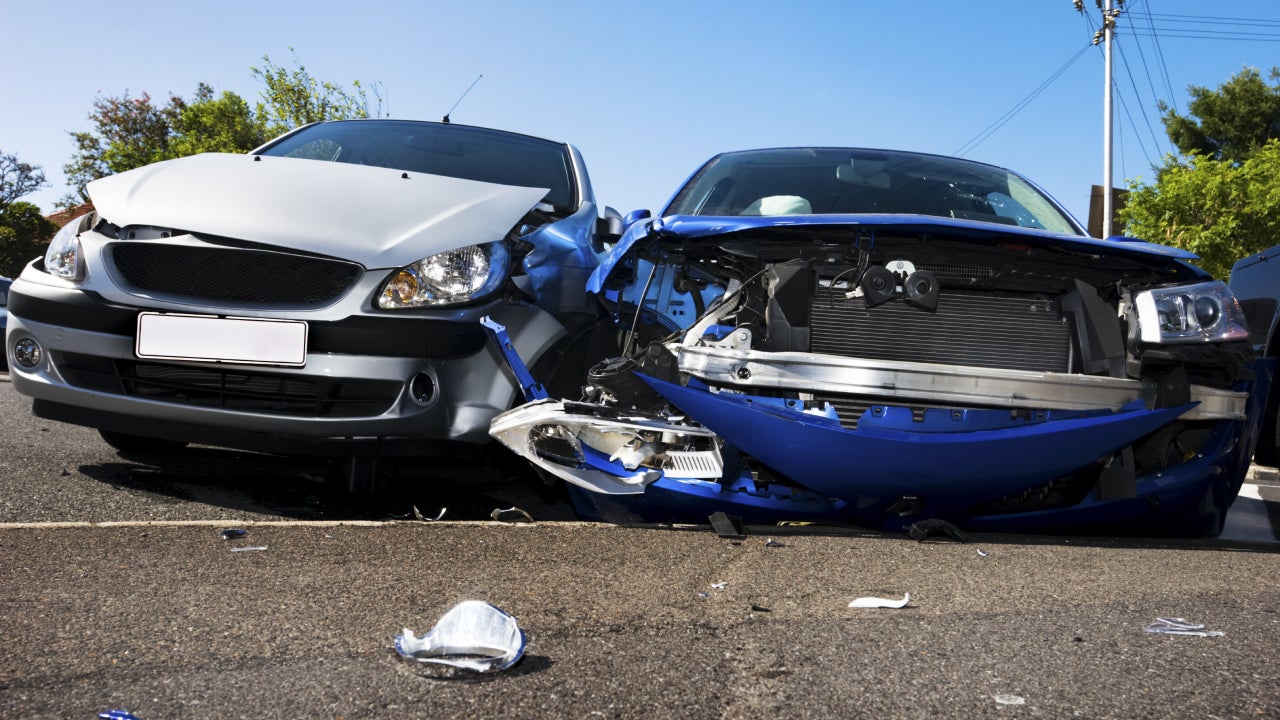What happens to insurance when you sell your car?

Our writers and editors used an in-house natural language generation platform to assist with portions of this article, allowing them to focus on adding information that is uniquely helpful. The article was reviewed, fact-checked and edited by our editorial staff prior to publication.
Selling a car can be a daunting process, and there are many things to consider before the sale is complete. One aspect that often gets overlooked is car insurance. You’ll likely want to maintain insurance coverage until the car is legally no longer yours. After selling, your insurance policy can be canceled, updated for a new vehicle or switched to a non-owner policy depending on your situation.
What happens to your insurance policy when you sell your car?
When you sell your vehicle, your car insurance policy doesn’t transfer to the new owner. Instead, you’ll need to contact your insurance company to discuss next steps. What happens to your policy will depend on whether you’re replacing the car and how quickly. In most states, canceling your policy prematurely can put you at risk for fines, a license suspension or a coverage lapse — the latter could lead to higher insurance rate in the future. According to data from Quadrant Information Services, a coverage lapse increases full coverage car insurance rates by an average of 11 percent.
Do you need insurance on a car you’re selling?
Even if you’re not driving the vehicle, as long as it’s still registered in your name, most states require you to maintain some level of auto coverage. During the sale process, you could be held legally and financially responsible for any accidents involving your car, such as during a potential buyer’s test drive. For this reason, you’ll likely want to maintain coverage until the sale is complete, the title has been signed over and a notice of transfer and release of liability has been submitted to the department of motor vehicles (DMV) if required by your state.
What do you do with your insurance policy after selling your car?
What happens to insurance when you sell your car is up to you. It will mostly depend on if and when you decide to buy a new vehicle:
- Buying a new car immediately: You may be able to keep your insurance after selling your car. You can simply add your new vehicle to your existing policy instead of canceling your old car insurance policy and starting the process again from scratch.
- Buying a new car later on: If you plan on waiting a while before purchasing a new vehicle but frequently borrow someone else’s car, you could consider a non-owner car insurance policy. This kind of policy provides liability coverage when you are driving a vehicle you do not own, whether it is a rental car or if you’re borrowing a friend’s set of wheels.
- Not planning to purchase a car: If you live somewhere with robust and reliable public transportation and are planning to go car-less for the future, you can cancel your policy outright.
How do you cancel your auto policy after selling your car?
Knowing when to cancel your car insurance after selling is just as important as knowing how to do it. First, it is important to ensure that the sale is complete. This means you’ve signed over the title, completed the bill of sale and submitted a notice of release of liability to the DMV, if required. Then, contact your insurance company with a copy of the bill of sale to prove the car is no longer in your name. Follow the carrier’s specific cancellation process, which may include a written request or a phone call. Be aware, some companies may charge a cancellation fee. If you’ve prepaid your premium, you may be entitled to a refund for the remaining coverage, less any cancellation fee.
Selling your car: step-by-step guide
Selling your car can be a complex process, but with a little preparation and the right knowledge, you can make sure it goes smoothly. Here’s a step-by-step guide on how to prepare your car for sale, list it, and complete the necessary paperwork.
Prepare your car
First impressions matter when selling a car. Start by deciding how you plan to sell your car. Options include a trade-in, private sale, dealership or car buying website. Then, gather necessary documents such as the car title and service records. It’s also helpful to address any mechanical issues and consider fixing minor cosmetic problems. A detailed cleaning of the car, both inside and out, can make it more appealing to potential buyers. Looks aside, it is also imperative to set a realistic asking price. Many experts recommend using tools like Kelley Blue Book and local listings for comparison.
List your vehicle for sale
When you’re ready to list your vehicle for sale, choose a platform that targets your desired audience. Next, create an attractive ad with a detailed description, quality photos of the car and your contact information. Be sure to screen callers carefully and arrange a safe place for a test drive. Most buyers of used cars will want to negotiate a little, so come in ready to discuss the sticker price. Once a sale is agreed upon, ensure the buyer is ready to pay with cash or a cashier’s check to avoid payment issues.
Finalize paperwork
Completing a vehicle sale involves a few key documents. As the seller, you’ll need to sign the car’s title and provide the buyer with a bill of sale. If there’s a lien on your car, you’ll also need to obtain a lender affidavit or pay off the loan. Once the sale is finalized, the buyer will take the title to their local DMV to have a new title issued in their name. Always make copies of all signed paperwork for your records.
Frequently asked questions
-
-
If you plan to buy another car immediately after selling your old one, you may be able to add the new vehicle to your policy and maintain coverage with the same insurer. That said, experts recommend comparing quotes with multiple carriers when you purchase a new vehicle as the cheapest carrier for your new car may not be the same as the cheapest option for your old vehicle. Shopping for car insurance and comparing quotes before you choose your new make and model may also help you see how your choice of vehicle impacts your auto insurance rate.
-
You can cancel your car insurance if you have an open claim, but be aware of potential cancellation fees and that the claim will remain with your previous insurer until fully resolved. Switching insurers during an open claim is typically discouraged as it could lead to increased premiums. Ensure continuous coverage and disclose the open claim to your new insurer to avoid complications.
-
Your car insurance could go up, down or stay the same if you purchase a new car. Buying a car with improved safety features or cheaper repair costs may result in a lower premium, while buying a newer car or one that is perceived as higher risk by insurers may result in a higher premium. Generally, buying a new car means getting a newer model. As newer cars usually have higher replacement costs, your insurance will probably go up with your upgrade. Comparing quotes before buying a new car could help you decide on the right make and model for your budget.
-
Why we ask for feedback Your feedback helps us improve our content and services. It takes less than a minute to complete.
Your responses are anonymous and will only be used for improving our website.
You may also like

When and how to cancel your car insurance policy






